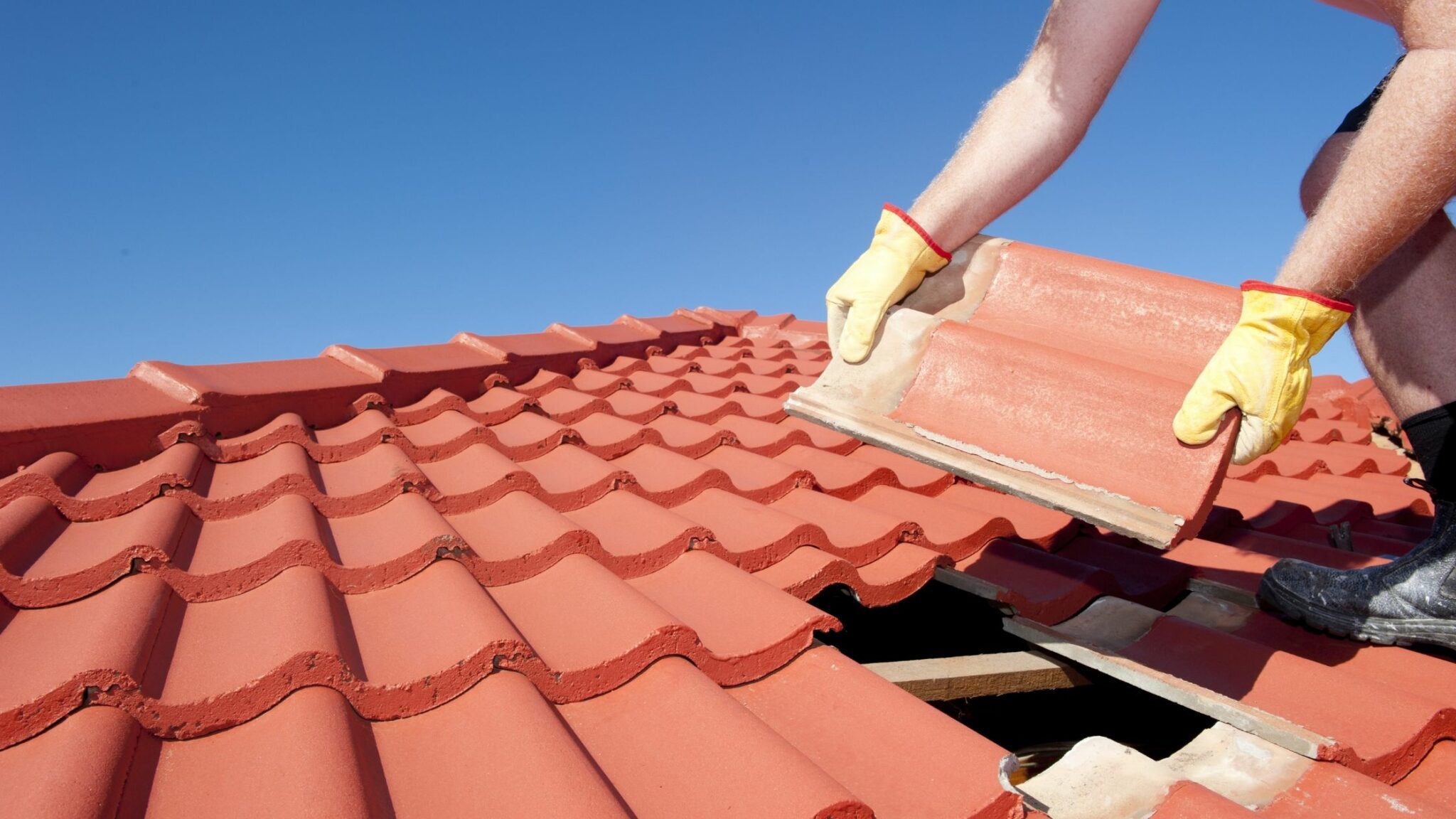All About Flat Roof Replacements
All About Flat Roof Replacements
Blog Article
Local Flat Roofers: Expert Roofing Remediation Providers To Repair Leaks And Damage Effectively
Exploring Various Kinds Of Roofing Repair Works
Ever looked at a strange dark spot on your roof and questioned, " What's actually going on up there?" Often, identifying the right type of roof repair is like investigator work, unraveling ideas left by the weather, time, and wear. From subtle leaks to glaring damages, each repair type narrates.

Common Roofing Repairs Revealed
- Drip Repairs: The sneaky offenders-- tiny cracks or holes where water insinuates. Disregarding them can turn a moderate trouble into a pricey problem.
- Shingle Replacement: Missing out on or broken shingles aren't just an eyesore; they're invitations for water damage and bugs.
- Flashing Repair work: Those metal strips around chimneys and vents? When harmed, they become entrances for leaks.
- Roofing System Vent Repair Works: Proper ventilation keeps your attic dry and your energy bills low. When vents stop working, the roof suffers calmly.
When Small Fixes Make a Huge Difference
Imagine a good friend who neglected a minor roofing leakage, thinking it was no huge offer-- up until a storm hit, turning a drip into a deluge inside their home. This anecdote underscores why prompt repair work matter. The ideal fix might be as basic as sealing a fracture or as included as changing numerous shingles. How do you choose? Here's a quick choice guide:
| Problem | Normal Repair work | Indications to Look for |
|---|---|---|
| Leaks | Sealant application or patching | Water stains on ceiling, mold development |
| Harmed Shingles | Shingle replacement | Missing out on granules, curling edges |
| Flashing Problems | Metal flashing repair or replacement | Rust, separation from roofing system |
| Ventilation Problems | Vent repair work or setup | Extreme attic heat, wetness accumulation |
Does not the intricacy of roofing repair work make you value the click here craftsmanship behind a tough roofing? In some cases, a patchwork task isn't enough-- other times, a quick repair breathes brand-new life into your entire roof. What's clear is this: understanding the kinds of repair work empowers property owners to act decisively, securing their investment before small fractures become wide gorges.
Revealing the Important Roofing Repair Work Materials
When a roofing system whispers indications of wear, the products you select for repairs can either extend its life or accelerate its death. Ever discovered how a handful of loose shingles can cause a waterfall of leaks? That's the delicate dance between asphalt shingles and weather's unrelenting assault. These shingles, frequently the first line of defense, are prized for their balance in between durability and ease of setup. Be careful-- merely patching with mismatched shingles can turn a fast repair into a future headache.
Metal flashing typically leaves notification until water discolorations appear on ceilings. This unassuming strip guards susceptible joints where various roofing areas fulfill. A skilled roofing professional understands to check and change rusty flashing before mold claims success. It's the distinction between a minor repair and an expensive interior remodelling
Products that Matter
| Product | Typical Use | Specialist Suggestion |
|---|---|---|
| Asphalt Shingles | Changing harmed or missing out on shingles | Match granule color and density for seamless blending |
| Metal Flashing | Sealing roof joints and around chimneys | Use corrosion-resistant metals and seal edges with roofing cement |
| Roof Cement | Sealing small fractures and securing flashing | Apply while warm for finest adhesion and durability |
| Roof Felt | Underlayment for moisture barrier | Staple carefully to prevent piercing the water resistant layer |
Have you ever questioned why some roofing systems seem to weather storms unscathed while others fail? The secret frequently lies below the surface area in the underlayment. Roof felt, a humble yet crucial product, serves as a second shield when shingles fail. Skimping here means inviting wetness to sneak in undetected. Here's a professional insight: always make sure the felt lies flat with no wrinkles; even a little bubble can trap wetness and lead to premature rot.
- Inspect fasteners-- loose nails can loosen shingles and stir disaster.
- Use a multi-layer approach; integrating materials increases durability.
- Keep in mind, roof cement is your pal but not a cure-all; it's best for area repair work.
In the realm of roof repairs, accuracy with products goes beyond mere patchwork. It's a calculated symphony of texture, wetness control, and weather condition resistance. The next time you raise a shingle, ask yourself: does this repair work honor the roofing system's original defense or simply paper over the cracks?
Examining the Damage with a Keen Eye
Ever climbed up onto your roofing system just to understand that what appeared like a minor leak might be concealing a labyrinth of harmed shingles and deformed decking underneath? The primary step in any roofing repair is a meticulous assessment. Walk the perimeter with care and look for curled edges, dark areas, or granule loss on the shingles-- these subtle signs typically whisper louder than an open hole. Do not simply glance; study the angles, due to the fact that water seepage rarely reveals itself politely.
Event Materials: The Accuracy of Preparation
Before rising the ladder, ensure you have all the required tools at arm's reach. Picture the aggravation of stabilizing on a slanting surface, understanding you forgot your roofing cement or roof nails. Here's a checklist to keep convenient:
- Replacement shingles matching your existing roofing
- Hammer and galvanized roof nails
- Roofing cement or sealant
- Utility knife for precise cuts
- Flat crowbar to remove broken shingles
- Safety belt and non-slip shoes
Precision in Elimination and Replacement
Eliminating harmed shingles requires both strength and skill. Insert the lever gently under the shingle, raising nails without tearing nearby locations. One may be tempted to tug forcefully, but gradual take advantage of prevents additional destruction. When positioning new shingles, stagger them properly-- remember, a misaligned shingle can become an entrance for rainwater, inviting leaks that slyly deteriorate your home's structure over time.
Sealing the Offer: Avoiding Future Leakages
Applying roofing cement isn't simply slathering tar; it's about creating a long lasting barrier. Dab a modest quantity under the shingle tabs and press firmly, ensuring a snug fit. Too much cement can crack in the sun, too little welcomes wetness. Have you observed how some roofs make it through storms untouched? That's the outcome of professional sealing, a subtle art that transforms easy repairs into lasting defense.
Safety Tips Every Do It Yourself Roofing Contractor Should Swear By
- Never work on a wet or windy day-- slips occur faster than you believe.
- Utilize a durable ladder placed on company ground and examine its angle.
- Use gloves to secure your hands from sharp edges and nails.
- Keep an emergency treatment package nearby; minor cuts can escalate if disregarded.
- Work with a pal whenever possible-- roofings aren't a solo experience.
Why Trusting Specialist Roofer Matters
Ever noticed how a basic leakage can silently transform into a disaster? Roof repair work demand precision, and working with amateurs frequently causes patchwork options that crumble with the next storm. An expert contractor does not just slap on shingles; they diagnose the root cause, whether it's worn flashing, jeopardized underlayment, or concealed rot.
Envision climbing up onto the roofing system yourself, equipped with a hammer and some nails, just to recognize you've aggravated the problem. The reality is, roofing system damage isn't constantly visible from the ground and even the attic. Professionals wield wetness meters and infrared electronic cameras-- tools that reveal the unseen. Would you trust your home's guard to guesswork?
Key Benefits of Expert Roofer
- Accurate Assessment: They determine subtle signs like granule loss or drooping decking that most miss out on.
- Code Compliance: Ensuring repairs fulfill regional building codes, avoiding future insurance coverage headaches.
- Material Expertise: Picking the best materials to match your roof's unique profile and climate challenges.
- Security First: Navigating steep slopes and heights with proper harnesses and devices.
- Service warranty Assurance: Backing repair work with assurances that protect your investment.

Professional Tips for Employing the Right Roofing Contractor
- Confirm licensing and insurance-- don't bet with unverified credentials.
- Request a detailed written quote outlining scope and materials.
- Ask about their process for addressing covert damage discovered during repairs.
- Examine how they manage particles elimination-- roofing work should not leave a mess behind.
- Verify experience with your specific roofing system type, whether asphalt, metal, or tile.
In roof repair work, faster ways frequently cost more in the long run. The professionals know when to repair, when to change, and how to extend your roofing's life-span. Isn't it much better to secure your home's very first line of defense with those who see beyond the surface?
Specialist Roof Fixes in Baltimore County
Baltimore County is a dynamic location understood for its varied communities and abundant history. With a population that enjoys a mix of rural and city living, the county offers attractions like the beautiful Loch Raven Tank and the lively Towson Town. Citizens gain from a strong local economy and access to quality public parks and cultural events, making it a preferable place to live and work.
For trustworthy suggestions and a complimentary consultation on roof repairs, think about connecting to CRG Roofing and Siding. They supply professional guidance tailored to your requirements and assist ensure your roofing system remains in outstanding condition.
Report this page